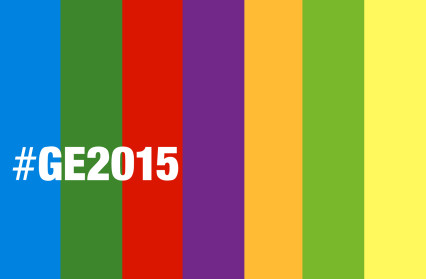With three hours until polling closes, Ben Glover asks – Should I vote?
Amongst the politically active this may sound faintly ridiculous, but to the 34.9% of the population (that is an incredible 15,909,857 people) that did not vote in the 2010 General Election, it is a legitimate question to ask. From the disenfranchised to those that did not vote as a form of protest, over a third of the electoral roll decided to opt out of the political process. Given the vagaries of the UK’s parliamentary system (and let’s be honest, the First-Past-The-Post/unicameral system is outdated and truly archaic) sixty percent of potential votes cast today have little impact, if any at all. This leaves ten percent of the electorate, all in marginal constituencies, with all the influence and power. For instance, if you live in Knowsley, a constituency that returned Labour’s Gerald Howarth at the last election with a huge 71% of the vote, how much does your vote really count? Not all votes are equal.
No, don’t vote.
Until very recently, Russell Brand was the Bohemian poster boy for this concept of participation by abstention. In an interview with Jeremy Paxman, Brand states;
It is not that I am not voting out of apathy. I am not voting out of absolute indifference and weariness and exhaustion from the lies, treachery and deceit of the political class that has been going on for generations
It may seem like a persuasive argument for a section of society, the ‘disenfranchised, disillusioned underclass’ may feel that no candidate or party truly represents them on any level. The rise of the career politician, the MPs’ expense scandal and general distrust of failed promises, has left many voters feeling cold towards their elected representatives.
However, any statement made by not voting is not counted as such. Instead the message understood by the political establishment is that every non-voter acquiesces to the government and any policy they make thereafter. The non-vote out of protest is counted amongst the many non-votes from those that do not care. There is no distinction made – you don’t vote, you have no voice.
Yes, do vote.
Voting is a privilege that most of the world does not enjoy. We, as a nation, get to choose our leaders, have an input into how the government works and determine the values of our country. We chose to build a welfare state. We chose to found a NHS. And we should be rightfully proud of these democratic achievements.
However, equally we are responsible for the introduction of austerity, the enforcement of the Poll Tax and re-electing the Labour Government after the Iraq War. But all democracy has to be by its very nature a compromise. We might not always get the government or the policies we wanted, but at least we have registered our opinions. The former Norwegian Prime Minister Jens Stoltenberg once stated that ‘by voting, we add our voice to the chorus that forms opinions and the basis for actions’, even if this is for a minority party in your constituency it will still have an impact.
Furthermore, the spoiling of the ballot paper is a legitimate form of protest. Every vote is counted, every spoilt ballot is registered. It makes a statement that protesting by non-voting can not hope to make; if there are no candidates in your constituency that represent your views, don’t hope for the best – go into the polling booth and make your feelings known. Write ‘None Of The Above’ in block capitals, draw a 70s’ style cock and balls on the ballot or scribe an essay on to post on social media, but by god, do something!
Why I vote.
The idea behind the First-Past-The-Post system was that it would keep producing strong governments, which for the majority of twentieth century it did. A straight choice between two parties mostly returned a government that acted like an elected dictatorship. But in a more plural system this has changed slightly, legitimacy not on derives from the number of MPs a political party has, but also by the number of votes they register overall. So every vote counts.
There are many reasons to vote; the weight of tradition and history (people really did die defending our right to vote), a sense of civic duty or even just to participate in a more exciting version of Eurovision. My reasons for voting are partly these, but also, I want to see change. Real change. Change that you can tell the grandchildren about. I vote because I believe tomorrow will be a brighter day and that things can get better. The audacity to hope (thanks Barack) is truly a wonderful thing.



